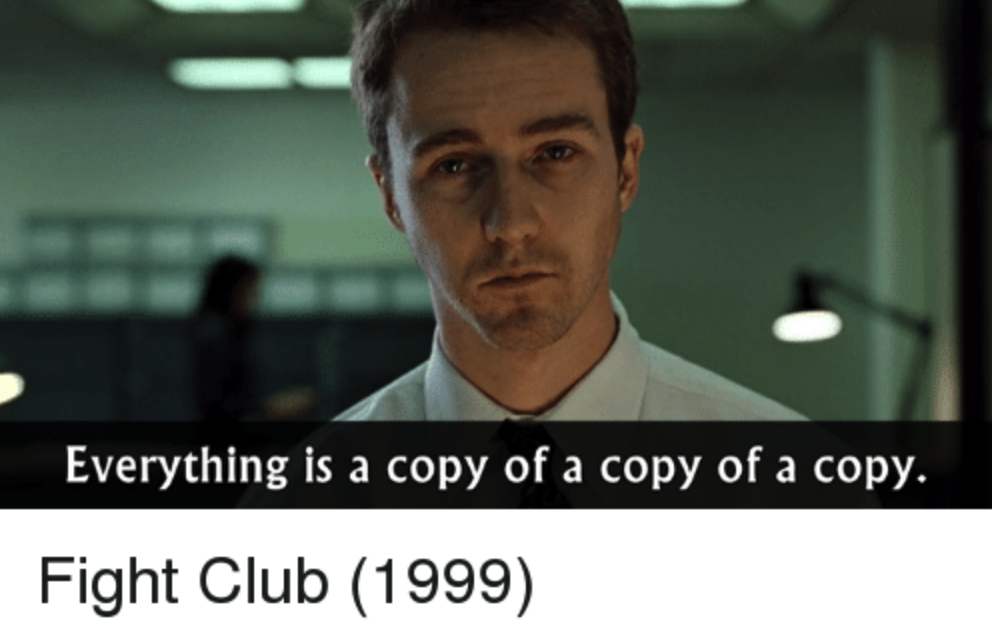

Fiction filler is like fillers in food. It makes a little bit of good stuff go a lot farther, but at what cost? How much of this pink slime prose can we really get away with before readers feel ill?
Almost everyone has padded some form of writing—a school paper, essays, presentations, resumes, etc. In college, I used to write in the passive voice because, over the span of a research paper, I could squeeze in at least 30-40 extra words.
The Indonesian government was taken over by a CIA coup (passive voice).
A CIA coup took over the Indonesian government (active voice).
Add in a bunch of extra modifiers? Easy peasy!
A nefarious CIA coup secretly took over the legitimately elected democratic government of Indonesia, much to the population’s deeply profound dismay.
WINNER! …or not.
Trust me, when you’re barely squeezing over that 20-page limit? Every bit helps. And, if a little filler goes a long way, then a LOT of filler should go much farther straight into the trash.
With non-fiction, it’s often expected that authors will pad the work but even then? Don’t get crazy.
Why Use Non-Fiction Filler?


Non-fiction filler is so common, most people don’t notice it. For instance, testimonials are a common way to pad the word count. If you read most diet books, the authors will almost always include personal stories how X eating plan changed lives among those in their target audience.
These filler sections teach nothing directly about the diet, workout plan, budget guide, or ways to start a small business, but they do add credibility to the experts and their books.
If I write a non-fiction about how to lose a hundred pounds or more, then it’s a GREAT idea to have testimonials showing I might actually know what I’m talking about. Testimonials demonstrate, via anecdotal evidence, that my methods not only work, but that my results can and have been duplicated by others.
Think about infomercials.
How much of the infomercial is about the actual item versus people using the product or telling how X gizmo did something amazing?


Other non-fiction filler might be exercises, examples, or addendums (I.e. sample budgets, diet plans, meal plans, goal sheets, etc).
Non-fiction filler serves another, and fairly obvious, purpose. It can make the work long enough to justify people buying the physical BOOK (hopefully in hardback). For those who are pre-published and might not know, we need to reach a certain word count for a printed work.
If our work is too short, we don’t have a book, we have a pamphlet. We need to have enough content to make a decent book spine that is wide enough to showcase the title and our name.
While some people are happy to sell only in digital form, NF authors like to be able to sell ‘the book at the back of the room.’ NF authors also need a print book in order to negotiate placement with retailers (I.e. airport newsstands, Costco, Target, Walmart).
What about Fiction Filler?


Writers will pad a work of fiction because—DUH—they also want/need it to be longer. Perhaps the story isn’t quite robust enough to be a full-length novel. If I want a book to hold in hand, it needs to be a certain word count…so I add a little extra.
No problem, so long as I don’t get crazy.
Or, say if I want to list my book on Kindle Unlimited, I know I’m paid more for a longer book (KU pays per page read). Thus, there is a temptation to add in extra words so I can, theoretically, make more money.
To a degree, this can work. Yet, there is a certain threshold we reach where it just becomes bad writing. It won’t matter HOW much KU pays per page if readers want to throw their Kindles across the room twenty pages in. It will be MUCH harder to encourage future readers if most of our reviewers are wielding digital torches and pitchforks.


***I cover some of how to remove the major offenders here in my post, Editing for Authors: 7 Ways to Tighten the Story and Cut Costs.
All this said, I LOVE description. For me, there is nothing better than a novel with prose so rich and yummy I want to dog-ear, highlight and pillage for my collection of shinies. THIS, however, is a stylistic choice, and has nothing to do with skill level.
Lush prose (AWESOME) doesn’t automatically qualify as purple prose (NOT AWESOME).
This brings us to our first fiction filler offender.
Purple Prose to Plump the Plot


Purple prose is the literary equivalent of cotton candy. Lost of sugar spun with even more air. A little is fine but too much will make us sick.
Purple prose is defined as:
…overly ornate text that may disrupt a narrative flow by drawing undesirable attention to its own extravagant style of writing, thereby diminishing the appreciation of the prose overall.
Have you ever read a work that rambled on so long with the description that, eventually, you forgot the point of the story? While purple prose certainly can pad the word count, it’s also a quick way to frustrate readers. Anything that disrupts the story, and thus interrupts the fictive dream, is bad.
For example, if I spend so long describing a magical forest that the reader has to go back to figure out why the MC is even in the woods? This, over time, gets annoying.
There really is no strict rule for what constitutes purple prose. Readers who love Hemingway-esque austerity are prone to think any description is too much description. Much of this is subjective.
So how can we ‘tell’?
One trick is to read your work aloud.
Record it on your phone and play it back. How does it sound? Are there places where you stumble reading it aloud? If the prose trips the tongue, odds are it will trip up the brain and the reader.
Read samples aloud to friends or a critique group. Though we can’t please everyone, if we get more than three people saying they were lost or confused? That’s a good hint we need to refine our work.
Nix redundant adverbs. That is just lazy/amateur writing. If your character yells loudly…um, how else are they supposed to yell? Adverbs can be powerful, but they can also be overused to prop up weak writing.
Check out Six Easy Tips for Self-Editing Your Fiction.
Just appreciate that sometimes, less is more, even in description.
Fiction Filler & Too Dumb to Live


I have Kindle Unlimited because I read and listen to an INSANE number of books. My KU membership gives me access to audio books that I can ‘read’ without using one of my credits.
***This is a fabulous way to attract new fans, most especially if you have a series.
Like I mentioned in my last post, Literary Larceny & Why People Should Be Ashamed, if I discover a new author on Audible, I will donate blood to finish their series/read everything they have available.
While I have scads of favorites, not every novel can be a winner. The last book I tried to listen to is largely what inspired this post. To be fair to the author, the concept was excellent and the story started off strong. Plenty of people enjoyed it.
But, in my POV, the author used SO much filler that they split their audience between those who loved it and those who wanted to set the work on fire, then salt the earth beneath it.
If we pad the run time, we risk making the characters—the MC in particular—come across as too dumb to live.
In this book, the MC had one annoying habit that finally rendered the story unreadable.
She questioned everything to the point of distraction. If she was going out for groceries, we (the readers) were subjected to paragraph after paragraph of annoying indecision.
(My parody to give the gist…)
I was supposed to make dinner, but I hadn’t been feeling well. Since I’d been sick for the past week, the fridge was almost empty. Was I really ready to get out of the house? I wasn’t sure.
What if I saw someone I knew? Worse still, what if someone from my husband’s office saw me? Would word get back to him? I didn’t know if I could take any more of his lectures how I was letting myself go.
Was I really letting myself go? I HAD been sick. Really sick. That should have been enough to not look my best. Wasn’t it? Or was I just making bad excuses?
Maybe I could try harder. I could wear my new sundress. No, too casual. What about my pants suit from the other day? That was nice enough, right? And only buy a rotisserie chicken. That wouldn’t take too long…
FOR DUCK SAKES, MAKE A DECISION!
Though I am being silly here to protect the guilty innocent, my example isn’t too far off from the painful waffling on almost every page of the novel. The MC fretted over every little thing on almost every page, with every…single…decision.
Apparently, I wasn’t the only one irritated to the point of distraction.


Word/Phrase Echoes as Fiction Filler
For anyone who’s ever completed an entire book, CONGRATULATIONS! For those who haven’t? I am warning you ahead of time that you WILL have a favorite word or turn of phrase that you’ll use WAY more than you intended.
It happens.
This is why good editors/beta readers are invaluable.
How do you know if you’ve used a word/phrase too many times? Ask two key questions here:
- If you turned every time the audience read a certain word/phrase in your MS into a drinking game, would readers die from alcohol poisoning?
- If you answered ‘YES’ to Question 1, then how QUICKLY would the reader die?


Many of these turns of phrase are common just in general. I’ve used the notion of a smile that doesn’t reach the eyes. This is used to convey to opposite of the Duchenne Smile, which is a smile of authentic happiness/enthusiasm.
Someone can be smiling at you, but deep down you sense they’d stab you if it were legal. Thus, their “smile doesn’t reach their eyes.”
Got it.
Nothing wrong with using this once, twice, maybe more. But, when we readers start noticing it to the point of distraction? That is a big problem.
This author was also a fan of ice in physiological descriptions. The MC’s blood turned to ice, her spine turned to ice, her stomach chilled to ice, ice flowed through her chest, her nerves froze to ice….
OKAY I GET IT! THIS BOOK HAS MORE ICE THAN THE POLAR CAPS!
Repetitive Actions/Scenes


One of the main reasons I’m a stickler about tight writing is because clean prose makes it much easier to see if our characters or plot are weak (then strengthen accordingly).
Sadly, what a lot of authors (new authors) do is, instead of fixing the core problems, they use giant globs of Literary Bond-O to hold their story together. How do we spot Literary Bond-O? Repetition.
The MC in this book was constantly drinking, falling or spilling something. I also lost count how many scenes the character was having wine. Which, hey I like wine but there are other background actions a character can be doing aside from refilling her drink.
Get Creative
In one scene, the MC refilled her glass so many times, she went through almost two bottles easily (4 glasses to a bottle). By the time the author got to the end of the scene? The MC should have been wasted.
Lord knows I wished I were…
Not to mention I paid more attention to counting refills than to the plot. No bueno.
I get it. The author was trying to show the MC was nervous. Fine. She’s in a kitchen. Refill the wine, reorganize the cutlery, refold the bar towels. There are a lot of other ‘busy’ activities that can show a character is nervous. Think beyond that ONE thing.
Change it UP!


The MC also kept startling, which is fine. But, again, she kept startling in the same exact way. I lost track how much stuff she dropped/broke/spilled.
Humans react all along a spectrum. Over at Writers Helping Writers, Angela Ackerman and Becca Puglisi have all KINDS of resources to help us add depth and dimension to our stories. These ladies are the authors of The Emotion Thesaurus, which is a MUST-HAVE in every author’s reference library.
There is more than one way to show every emotion or reaction. True, our heart races when stressed, but we can also get dizzy, have sweaty palms, ringing in the ears, etc. Vary up the physiology.
Yes, we can spill things when startled. Spilling something—coffee, wine, tea, contents of purse—every ten pages?
Everybody DRINK!
How to Fix the Filler


Again, beta readers and a good editor can help. Then there are also common offenders when it comes to repetitive words (look, looked, looking, turn, like, etc.).
If you suspect you might be using the same descriptors, use Word FIND and highlight every time a certain word pops up in the MS. For instance, if I keep using ice (ice in her heart, ice through her veins, Ice, Ice, Baby…) do a Word FIND for ‘ice’ and either highlight it or FIND/REPLACE in all caps with ICE. This will help you SEE just how many times you might be reusing the same word.
***Just expect to also see ‘sushi and rICE’, because Word FIND CHANGE/REPLACE won’t discriminate between ‘ice’ the word and ‘ice’ as part of a word.
Also, search for synonyms while you’re at it (cold, chill, frozen).
Once you’ve found all the offenders and fixed accordingly, then just use Word FIND Change/Replace to revert it back.
In the end, relax. First, give yourself permission to be new. Then, realize even the best writers do it. There is no such thing as the perfect book. As I mentioned with ‘purple prose’…
Some of this ‘filler’ is going to be subjective.
We still need to do the best we can. The more distractions we can remove from our story, the better the odds readers will not only finish our books, but they’ll read everything we have AND recommend us.
While we can’t please everyone, I do hope this post helps y’all trim any fat and get rid of any fiction fluff. Bye, bye, book bloat!
What Are Your Thoughts?
Have you tried to read or listen to a book and couldn’t get past all the empty fillers? Are there some other types of fictional fluff you would add to the list? Does fiction filler not bother you? Do you have a certain threshold you can take and then it’s OVER?
I love hearing from you!
What do you WIN? For the month of APRIL, for everyone who leaves a comment, I will put your name in a hat. If you comment and link back to my blog on your blog, you get your name in the hat twice.
What do you win?
The unvarnished truth from yours truly. I will pick a winner once a month and it will be a critique of the first 20 pages of your novel, or your query letter, or your synopsis (5 pages or less).
